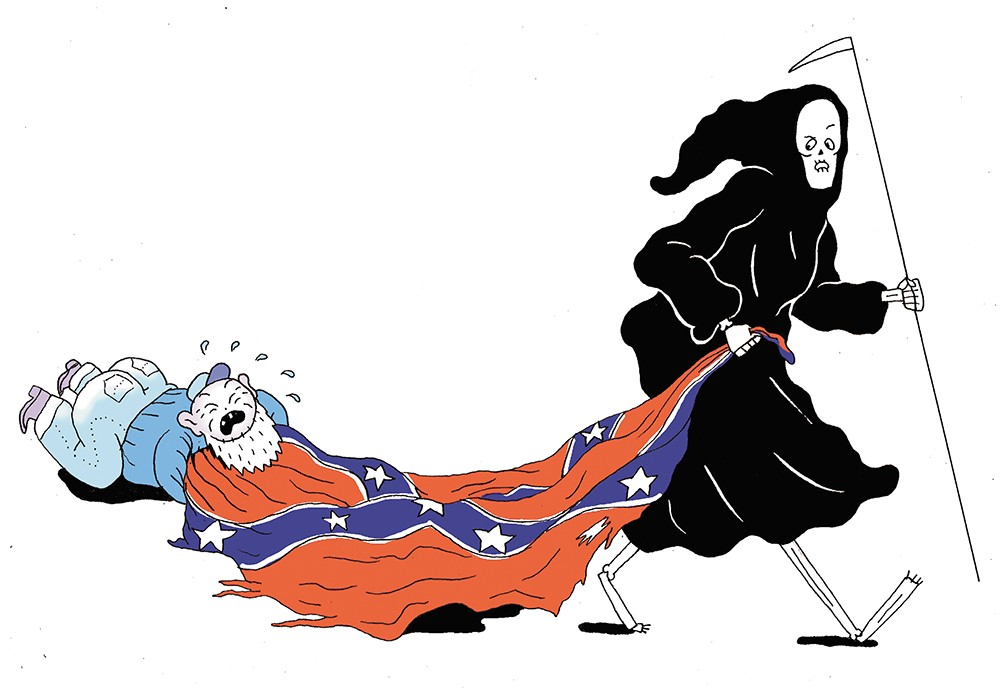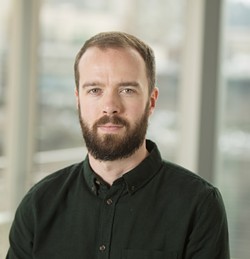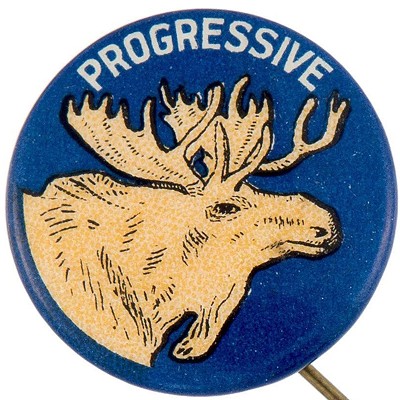Last Friday, I stepped out of the patented Atlanta humidity to tour the state capitol building of Georgia. Through the elegant rotunda, a legislator held a press conference challenging Georgia Gov. Nathan Deal to eliminate a state license plate for the "Sons Of The Confederacy." He also called for an end to the state's celebration of Confederate Memorial Day, an official state holiday, and Confederate History Month.
"He needs to take a cue from some of his Republican governors in other states who are calling for the elimination of Confederate symbols, state-authorized Confederate symbols," the legislator said. "If you're a private citizen and you want to have a shrine to the Confederacy in your home or your backyard and go pray to it every night, that's your business. But the state of Georgia should not be in the business of authorizing by deed or action the Confederacy, which is such a painful, painful part of the history of the South and this country."
Down here, Confederate hero General Robert E. Lee's name is ubiquitous — elementary schools, high schools, parks, roads: You name it. The Georgia state flag itself contains the stars and bars, an insidious and more elusive symbolism for all to see. It's "heritage, not hate," defenders say. That conversation changed after the atrocity in Charleston on June 17. President Barack Obama gave a remarkable interview to Marc Maron on his WTF podcast, discussing how the history of slavery and segregation is "still part of our DNA" in the United States, even if racial epithets no longer show up in polite conversation.
"Racism, we are not cured of it," Obama said. "And it's not just a matter of it not being polite to say [the N-word] in public. That's not the measure of whether racism still exists or not. It's not just a matter of overt discrimination. Societies don't, overnight, completely erase everything that happened 200 to 300 years prior."
Those words turned my thoughts toward recent incidents in the Northwest. General Lee never made it to Washington state, but white supremacists marched in our state capitol of Olympia after the police shooting of an unarmed African American youth there in May. Mere hours post-Charleston, a skinhead was sporting a swastika armband and Nazi paraphernalia at a protest at the downtown Seattle ferry dock on his way to posh and progressive Bainbridge Island.
Earlier this year, when a grand jury didn't indict the New York police officer whose chokehold killed Eric Garner, Spokane's Hillside Inn restaurant displayed a sign saying "Shorty can't breathe either." Our very own City Councilman Mike Fagan came to their rescue, posting on Facebook: "Help protect this Spokane business from the PC police and any race baiters who may come forward to give Annie, the business owner a bad time." Fagan's backward logic amounted to equating two black people who pleaded guilty to a homicide with a white man whose actions caused another man's death and wasn't charged at all. Huh?
Racism is alive and well. It continues to be part of the American fabric, and can't be eliminated by taking down a flag or ending the availability of a license plate. Recent events represent a battle won, but there is a real danger in thinking that our response should stop there. When institutions and individuals give support to any symbols or positions of oppression and hatred, not only is the intent of the progress made in civil rights laws lost, but the intent of a civil society is gone. Space is created for the hatred that support feeds. If that doesn't change, racism will happen again. And again. And again — from Savannah to Spokane. ♦
Paul Dillon is the Eastern Washington Program Director for YMCA Youth & Government, teaching democracy to youth through hands-on civic engagement. He has worked in the state legislature and currently lives in downtown Spokane.

















